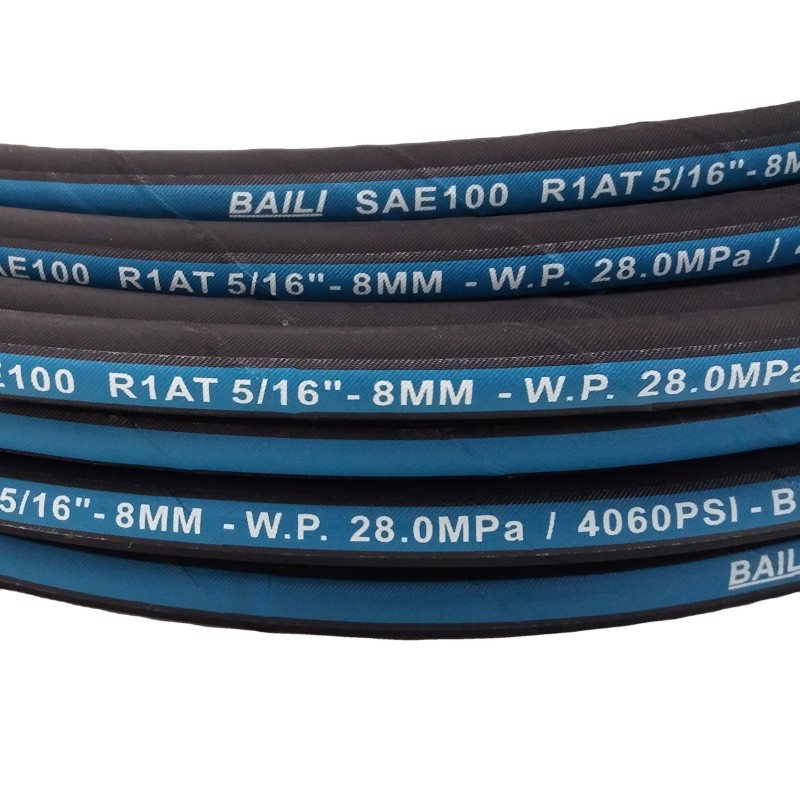Oct . 03, 2024 03:53 Back to list
High-Quality Resin Hose Solutions for Diverse Industrial Applications
Understanding Resin Hose Products Features, Benefits, and Applications
Resin hose products have gained significant traction in various industries due to their unique properties and versatile applications. These hoses, made from different types of synthetic resins, offer superior performance and durability compared to traditional rubber or metal hoses. This article delves into the features, benefits, and diverse applications of resin hose products.
Features of Resin Hose Products
1. Material Composition Resin hoses are typically constructed from thermoplastic materials such as polyurethane, polyvinyl chloride (PVC), or polyethylene. This composition allows them to be lightweight yet strong, providing excellent resistance to wear and tear.
2. Flexibility One of the standout features of resin hoses is their flexibility. They can bend and twist without losing structural integrity, making them ideal for applications where space is constrained or where movement is necessary.
3. Chemical Resistance Resin hoses exhibit remarkable resistance to various chemicals, oils, and solvents. This attribute makes them suitable for use in industries such as chemical processing, pharmaceuticals, and food and beverage, where contact with aggressive substances is common.
4. Temperature Tolerance Many resin hoses can withstand extreme temperatures, both hot and cold. This capability allows them to function effectively in a range of environments, from freezing conditions to high-temperature applications.
5. Lightweight Nature Compared to metal hoses, resin hoses are considerably lighter. This feature facilitates easier handling, installation, and transportation, which is particularly beneficial in industries where mobility is crucial.
Benefits of Using Resin Hose Products
1. Durability The robust nature of resin hoses means they have an extended lifespan, reducing the frequency of replacements and associated costs. Their resistance to UV rays, weathering, and abrasion contributes to their durability.
2. Safety The non-toxic properties of many resin hoses make them safe for food and beverage applications, as well as for use in environments that require strict safety standards. Additionally, their lightweight nature helps in reducing the risk of worker injuries during handling.
3. Versatility Resin hoses can be tailored to meet specific requirements across a wide array of industries. Their compatibility with various fittings and connectors enhances their adaptability in different systems.
resin hose products

4. Cost-Effectiveness While the initial investment might be higher than some traditional options, the longevity and reduced maintenance requirements of resin hoses can result in overall cost savings over time.
5. Low Maintenance Due to their robust construction and resistance to various factors that typically cause wear, resin hoses generally require less maintenance than their rubber or metal counterparts.
Applications of Resin Hose Products
1. Agriculture In the agricultural sector, resin hoses are utilized for irrigation systems and pesticide application. Their resistance to chemicals and UV rays makes them ideal for prolonged outdoor use.
2. Automotive The automotive industry employs resin hoses for fuel lines, coolant hoses, and air intake systems. Their ability to withstand high temperatures and resist fuels and oils is crucial in automotive applications.
3. Construction In construction, resin hoses are used for powering pneumatic tools and as air or water lines. Their flexibility and lightweight characteristics are beneficial on job sites.
4. Food and Beverage Due to their non-toxic and easy-to-clean nature, resin hoses are widely used in food processing and beverage production. They ensure that products remain uncontaminated during transport.
5. Medical Applications In the medical field, resin hoses are used in various equipment, including oxygen delivery systems and fluid dispensing units. Their safety and reliability are vital in healthcare settings.
6. Industrial Use Many industries rely on resin hoses for various applications, including vacuum systems, hydraulic lines, and conveying materials. Their chemical resistance and durability make them suitable for a wide range of industrial processes.
Conclusion
Resin hose products are an essential component across various industries due to their unique combination of flexibility, durability, and resistance to chemicals and temperature extremes. As industries continue to evolve and demand better materials, resin hoses will likely play an increasingly important role in enhancing efficiency and safety. Choosing the right resin hose for specific applications can lead to improved performance and longer service life, ultimately benefiting operations and reducing costs.
-
Best Four Steel Wire Spiral Hose Hydraulic R12 – Durable High-Pressure Hose Manufacturer
NewsJul.08,2025
-
High-Quality 1/4 Hydraulic Hose – Soft, Flexible & Durable Rubber Hoses for Industrial Use
NewsJul.08,2025
-
1 1 2 Inch Hydraulic Flexible Hose - Durable, Reliable, High-Pressure Solutions
NewsJul.07,2025
-
High-Quality 1 2 Rubber Hose - Durable, Flexible Hydraulic Solutions
NewsJul.07,2025
-
Discover SAE Hydraulic Hose Types - High Quality & Durable Hoses from Leading Factory Supplier
NewsJul.06,2025
-
High Pressure Wire Hydraulic Rubber Hose Supplier Durable & Reliable 1SN Hose Solutions
NewsJul.06,2025
